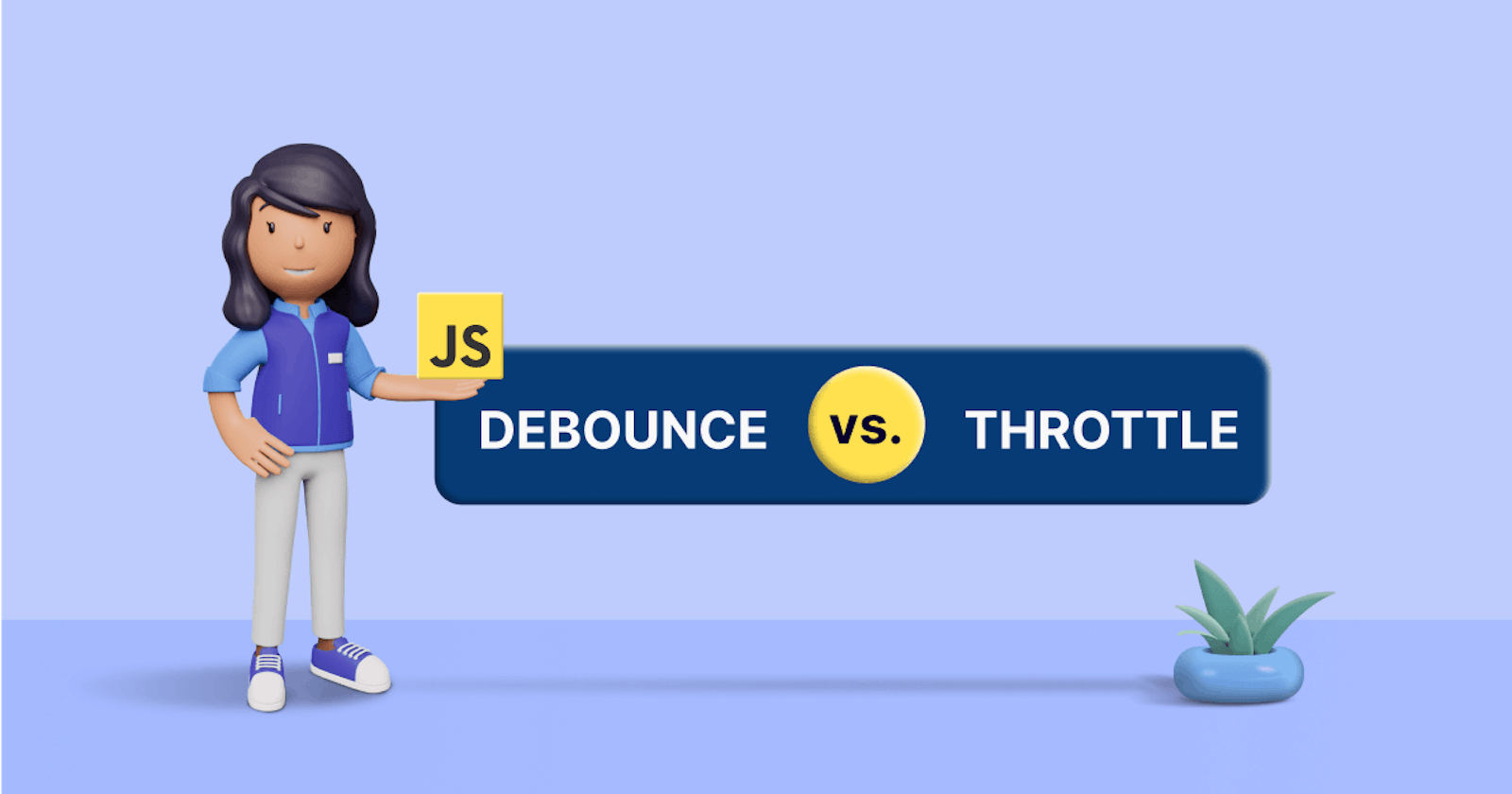Question : How does the JavaScript code implement debounce functionality for button clicks?
Explanation: The JavaScript code uses lodash's _.debounce function to create a debounced version of a callback function. It tracks the number of times a button is pressed and updates the count after a specified debounce time (800ms in this case).
const btn = document.querySelector(".Increment_btn");
const btnPress = document.querySelector(".increment_pressed");
const count = document.querySelector(".increment_count");
var pressedCount = 0;
var triggeredCount = 0;
const debouncedCount = _.debounce(() => {
count.innerHTML = ++triggeredCount;
}, 800);
btn.addEventListener("click", () => {
btnPress.innerHTML = ++pressedCount;
debouncedCount();
});
<html lang="en">
<head>
<meta charset="UTF-8">
<meta name="viewport" content="width=device-width, initial-scale=1.0">
<title>Debouncing and Throttling</title>
</head>
<body>
<div>
<h1>Subscribe Me <br/> else you wil have bad dreams today</h1>
</div>
<button class="Increment_btn">Increment</button>
<p>Button Pressed <span class="increment_pressed">0</span> Times</p>
<p>Triggered <span class="increment_count">0</span> Times</p>
<-- here it is cdn for lodash -->
<script src="https://cdnjs.cloudflare.com/ajax/libs/lodash.js/4.17.21/lodash.min.js" integrity="sha512-WFN04846sdKMIP5LKNphMaWzU7YpMyCU245etK3g/2ARYbPK9Ub18eG+ljU96qKRCWh+quCY7yefSmlkQw1ANQ==" crossorigin="anonymous" referrerpolicy="no-referrer"></script>
<script type="text/javascript" src="debounsing.js"></script>
</body>
</html>
Question: How does the JavaScript code implement throttle functionality for button clicks?
Explanation: The JavaScript code uses lodash's _.throttle function to create a throttled version of a callback function. It tracks the number of times a button is pressed and updates the count at intervals of 1000ms, ensuring that the callback function is not invoked more than once in that interval.
const btn = document.querySelector(".Increment_btn");
const btnPress = document.querySelector(".increment_pressed");
const count = document.querySelector(".increment_count");
const throttleCount = _.throttle(() => {
count.innerHTML = ++triggeredCount;
}, 800);
btn.addEventListener("click", () => {
btnPress.innerHTML = ++pressedCount;
throttleCount();
});
Question: What is the purpose of the JavaScript code for a custom debounce function (polyfill)?
Explanation: The JavaScript code defines a custom debounce function myDebounce that mimics the behavior of lodash's _.debounce. It creates a debounced version of a callback function and ensures that the callback is executed only after a specified debounce time (800ms in this case) since the last invocation.
const myDebounce = (cb, d) => {
let timer;
return function (...args) {
if (timer) clearTimeout(timer);
timer = setTimeout(() => {
cb(...args);
}, d);
};
};
const debouncedCount = myDebounce(() => {
triggeredCount += 1;
count.innerHTML = triggeredCount;
}, 800);
btn.addEventListener("click", () => {
btnPress.innerHTML = ++pressedCount;
debouncedCount();
});
Question: What is the purpose of the JavaScript code for a custom throttle function (polyfill)?
Explanation: The JavaScript code defines a custom throttle function myThrottle that mimics the behavior of lodash's _.throttle. It creates a throttled version of a callback function and ensures that the callback is invoked at most once per specified interval (1000ms in this case), preventing rapid successive invocations.
const myThrottle = (cb, d) => {
let last = 0;
return now = new Date
};
const throttled = myThrottle(() => {
triggeredCount += 1;
count.innerHTML = triggeredCount;
}, 1000);
btn.addEventListener("click", () => {
btnPress.innerHTML = ++pressedCount;
throttled();
});

